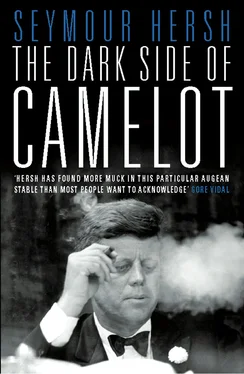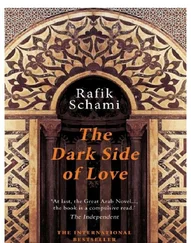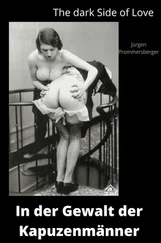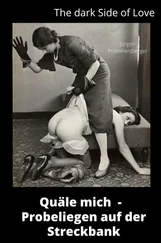Texas senator Lyndon B. Johnson’s last-minute declaration just days before the convention that he would, after all, be a candidate for the presidency—an announcement that created a flurry of press reports—was too little, too late, in Raskin’s view. “The front-runner was unbeatable,” he wrote. “For unknown reasons, some members of the press refused to concede the nomination of Kennedy, ignoring the arithmetic reported by their associates.… Johnson and his managers must have had access to the same information. Much of it was published and verifiable through Johnson connections in almost every state. Why then, I asked myself, did the anti-Kennedy forces continue their futile struggle?” Johnson stayed in the race until the presidential balloting and suffered an overwhelming defeat by Kennedy on the convention floor.
The fact that Kennedy had locked up the nomination weeks in advance of the convention was one of the campaign’s secrets. There were other secrets far more damaging, any one of which, if exposed, could cost the handsome young candidate his otherwise assured presidential nomination.
The most dangerous problem confronting the Kennedys before the convention was the hardest to fix, for it was posed by a group of reporters from the Wall Street Journal who were raising questions about the huge sums of cash that had been spent by the Kennedys to assure victory in the West Virginia primary. Their story, triggered by the instincts of an on-the-scene journalist, never made it into print.
Alan L. Otten, the Journal correspondent who covered the campaign, had been stunned by the strong Kennedy showing. He had spent weeks walking through the cities and towns of the coal counties and concluded, as he wrote for the Journal , that Humphrey would capitalize on the pronounced anti-Catholicism in West Virginia and win the Democratic primary handily. “Every miner I talked to was going to vote for Humphrey,” Otten recalled in a 1994 interview for this book. The reporter, who later became chief of the Journal’s news bureau in Washington, was suspicious when the votes were counted and urged his newspaper to undertake an extensive investigation into Kennedy vote buying. “We were fairly convinced that huge sums of money traded hands,” Otten told me.
Buying votes was nothing new in West Virginia, where political control was tightly held by sheriffs or political committeemen in each of the state’s fifty-five counties. Their control was abetted by the enormous number of candidates who competed for local office in the Democratic primary, resulting in huge paper ballots that made voting a potentially interminable process. In his Pulitzer Prize-winning account of the 1960 campaign, The Making of the President, 1960 , the journalist Theodore H. White noted that the primary ballots for Kanawha County, largest in the state, filled three full pages when published the day before in the Charleston Gazette . Sheriffs and other political leaders in each county made the process less bewildering for voters by putting together lists, or slates, of approved party candidates for each office. Some candidates for statewide offices or for important local posts, such as sheriff or assessor, invariably ended up on two, three, or more slates passed out on election day by campaign workers. The unwieldy procedure continues today.
The sheriffs and party leaders were also responsible for hiring precinct workers and poll watchers for election day. Political tradition in the state called for the statewide candidates to pay some or all of the county’s election expenses in return for being placed at the top of a political leader’s slate. Paying a few dollars per vote on election day was widespread in some areas, as was the payment for “Lever Brothers” (named after the popular detergent maker)—election officers in various precincts who were instructed to actually walk into the ballot booth with voters and cast their ballots for them.
The Journal’s investigative team, which included Roscoe C. Born, of the Washington bureau, spent the next five weeks in May and June in West Virginia and learned that the Kennedys had turned what had historically been random election fraud into a statewide pattern of corruption, and had apparently stolen the election from Hubert Humphrey. The reporters concluded that huge sums of Kennedy money had been funneled into the state, much of it from Chicago, where R. Sargent Shriver, a Chicagoan who had married Jack’s sister Eunice in 1953, represented the family’s business interests. The reporters were told that much of the money had been delivered by a longtime Shriver friend named James B. McCahey, Jr., who was president of a Chicago coal company that held contracts for delivering coal to the city’s public school system. As a coal buyer earlier in his career, McCahey had spent time traveling through West Virginia, whose mines routinely produced more than 100 million tons of coal a year. Roscoe Born and a colleague traveled to Chicago to interview McCahey “and he snowed us completely,” Born recalled in a series of interviews for this book. Nonetheless, the reporter said, “there was no doubt in my mind that [Kennedy] money was dispensed to local machines where they controlled the votes.”
Born, convinced that he and his colleagues had collected enough information to write a devastating exposé, moved with his typewriter into a hotel near the Journal’s office in downtown Washington. He was facing a stringent deadline—the Democratic convention was only a few weeks away—and also a great deal of unease among the newspaper’s senior editors.
As with many investigative newspaper stories, there was no smoking gun: none of the newspaper’s sources reported seeing a representative of the Kennedy campaign give money to a West Virginian. “We knew they were meeting,” Otten recalled in our interview, “but we had nothing showing the actual handing over of money.” The Journal’s top editors asked for affidavits from some of the sources who were to be quoted in the exposé; when the journalists could not obtain them, the editors ruled that the article could not be published. “The story could have been written, but we’d have to imply, rather than nail down, some elements,” Born said. “I really wanted to do it, but I can see that the editors would be nervous about doing it practically on the eve of the convention.” Other Journal reporters were told that Born and his colleagues had “gotten the goods,” as one put it, on the Kennedy spending in West Virginia. The columnist Robert D. Novak, then a political reporter on the Journal , recalled in an interview for this book hearing that the newspaper’s top management had concluded that the West Virginia money story could affect the proceedings in Los Angeles, and it was not “the place of the Wall Street Journal to determine the Democratic nominee for president.”
The Journal’s reporting team was far closer to the truth than its editors could imagine. Jack Kennedy had wanted a clean sweep in the April 5 Democratic primary in Wisconsin, aiming to defeat Hubert Humphrey in all ten of the state’s congressional districts, and he campaigned long hours to get one. He was bitterly disappointed when he won only six districts—and, most important, when his showing failed to discourage the equally hardworking Humphrey, who decided to continue his presidential campaigning in West Virginia. It was understood by professional politicians that Humphrey, too, would be putting in as much money as he could to meet the inevitable bribery demands of the county sheriffs. The Kennedy team also feared that other Democratic opponents for the nomination, Lyndon Johnson and Adlai Stevenson among them, would urge their backers to shove money into the state on Humphrey’s behalf in an effort to stop Kennedy and deadlock the convention. *
Читать дальше












